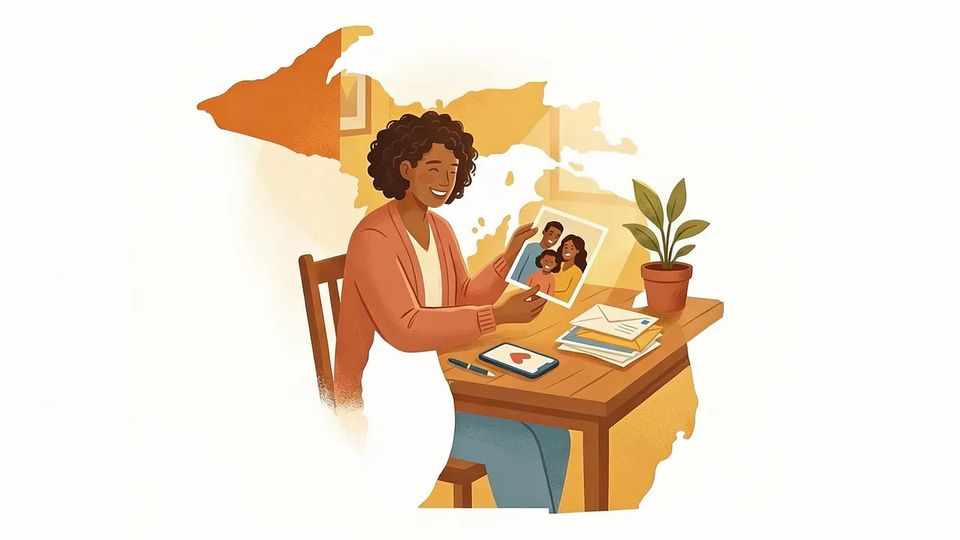
Michigan
Michigan county jails use different systems for phone calls, messaging, mail, and video visits. Confirm the exact vendor and rules for the specific jail where your loved one is housed before you try to connect. Following the wrong steps can mean rejected visits, returned mail, or failed deposits.
Phone & Messaging
The communication tools you use depend on the jail. Some facilities direct families to GettingOut for video visitation and related services. GettingOut...
Read guideVisitation
If you're using GettingOut and need help, GettingOut lists a customer care phone number you can call. Use support when you can't find the person you want to...
Read guideMail & Photos
Michigan jails can have very different mail setups. Some facilities route personal mail through a third-party processor that opens and scans mail, then...
Read guideSending Money
For commissary money and related purchases, many Michigan jails use third-party payment services. One example vendor, Express Account, advertises the...
Read guideFacility Info
Start by confirming where the person is actually housed (county jail location and name), then use the official county sheriff or corrections page for that...
Read guideWhat to expect inside: facility services and inmate programs
County jails are expected to operate under legal and constitutional requirements, and you'll often see this described directly in facility information...
Read guideFind an Inmate
Search for a loved one and send messages and photos in minutes.

Common Questions
Q
Can I visit in person or only by video?
It depends on the jail, and some Michigan jails prohibit face-to-face visitation entirely and run visits electronically. One example policy states all visits are conducted electronically via tablets and directs friends and family to set up an account with GettingOut to visit. Always confirm the current visitation type for the specific facility before you go.
Q
How long are video visits and is there a charge?
Time limits and fees depend on the facility and can change. One example set of rules describes approximately 25 to 26 minute video visit slots and a $2.50 per-visit cost, with one free video visit per week. Check the vendor page for your facility to confirm the current length, price, and any free-visit allowance before you schedule.
Q
Are tablet messages and phone calls monitored or recorded?
In many correctional settings, calls other than properly placed attorney calls may be monitored and recorded. Messaging and photo sharing is often handled through third-party platforms that require you to create an account first, such as SmartInmate.
Q
How should I address mail so it reaches the inmate's tablet account?
If the jail uses scanned mail, you usually have to mail letters to the vendor’s processing address, not the jail, and include the person’s full name and Booking/ID number. One Michigan example directs personal mail to Smart Communications at a P.O. box and says mail is opened, scanned, and typically available on tablets within 24 to 72 hours after it arrives at the processing center. Always use the exact format posted by the facility so it routes to the correct account.
